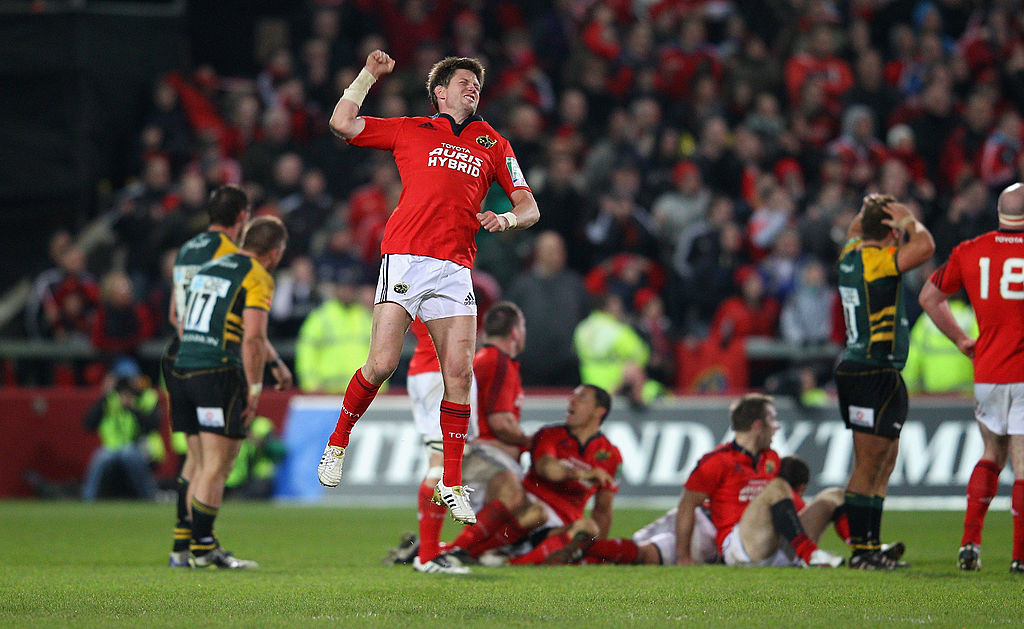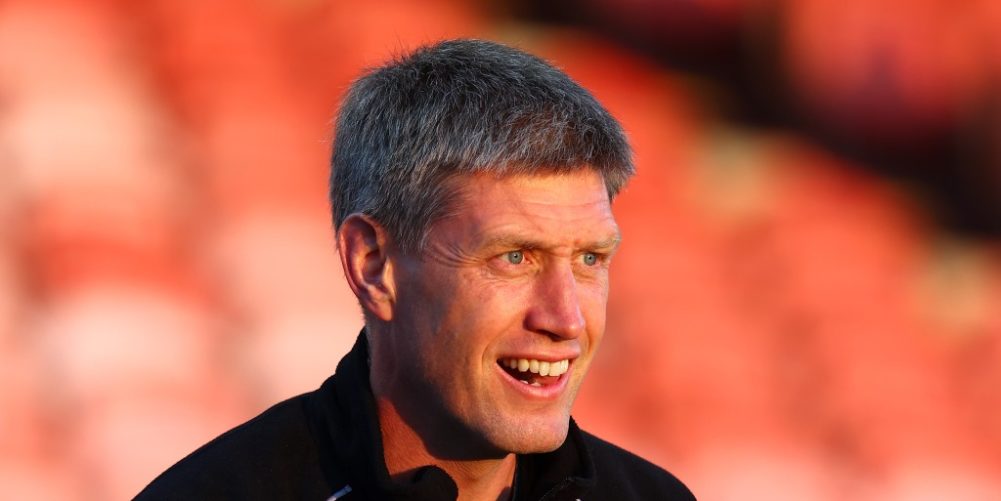A familiar old foe will be lying in wait for Leinster next Sunday to remind them of a historical fact, that no place in France does resistance better than It may be an exaggeration to say that only Ronan O’Gara stands between his compatriots and what neutral observers see as the dream Champions’ Cup final: Leinster v Toulouse – the only four-time winners colliding in the ultimate denouement.
Leinster’s wariness as to what awaits them on the far side of the Bay of Biscay will be all the more pronounced now that their Munster nemesis is to be promoted from head coach to overall charge of rugby affairs at the Stade Marcel Deflandre. The stadium name is the very embodiment of resistance on a scale chilling enough to make next Sunday’s semifinal a matter of mere trivia by comparison.
Deflandre, president of La Rochelle RFC when the Nazi occupation began in 1940, took up the fight for honneur et patrie (honour and homeland), was arrested on October 9, 1943 and executed on January 11, 1944. By then his home town had been turned into the deadliest U-boat base on the western Atlantic, so vital that Hitler had it guarded by 20,000 troops.
They took some shifting. La Rochelle was the last major centre to be liberated and then only after the Allies had pounded it for the last eight months of the war in Europe.
As a seaport it has an illustrious history of surviving sieges, all the way back to the 14th century when they saw the English off during The Hundred Years’ War. O’Gara will be concerned with more recent history, of a time and place – May 2, 2009 at Croke Park – which marked the genesis of Leinster as an irresistible force.
What the largest single crowd ever assembled for a European Cup tie – 82,208 – saw that day was a transferal of power, the passing of a baton from one provincial Irish team to another. Munster, the defending champions, weren’t so much beaten as outplayed, 25-6.
Three weeks later, Leinster had won their first title, beating Leicester at Murrayfield. Since then they have been to four more finals and won them all save for the last one, against Saracens at St James’ Park two years ago.
Saracens, of course, are nowhere to be seen, like the rest of the English contenders. Between them Leinster and La Rochelle removed the last two from the quarter-finals, Exeter and Sale respectively.
The draw clears the way for the biggest serial winners to contest the final or for La Rochelle and Bordeaux, neither of whom has been there before. Of the four, there can be no question that O’Gara’s men have played the most dazzling rugby, no mean feat considering that the quartet includes Toulouse.

The man whose all-time points record in European competition is such that it may never be eclipsed has always been one for the bigger picture. Since leaving Cork to embark on a new career he has been absorbing coaching and management skills on a global basis.
In Paris, he helped Racing win the Top 14 five years ago. In Christchurch, he was part of the Crusaders’ hierarchy presiding over successive Super Rugby titles in 2018 and 2019.
La Rochelle are joint top in France alongside Toulouse and into the last four in Europe. “We are just getting started with this project,” O’Gara wrote in his column for The Irish Examiner after a busy round of interviews to mark his promotion from head coach to numero uno from the end of the season.
“So from July 1 we would be looking to ratchet that up because La Rochelle is not where you’d like it to be. We are all nowhere near our ceiling.”
Those exhilarated by some of their rugby against Gloucester and Sale en route to the semi-finals will welcome that as a major statement of intent.
Unlike some coaches, O’Gara’s philosophy is driven by a desire to win with some style rather than a fear of losing.
His favourite acronym comes from his time at the Crusaders, KBA as in keep ball alive. “There is risk to that but you have to weigh up the risk and the reward,” he said after knocking Gloucester out. “We were good at times and inaccurate at times but that’s the beauty of the game.”
Once Jono Gibbes leaves to take charge of Clermont, O’Gara will assume the title of ‘head of the professional team’ armed with a contract through to 2024. Munster and Ireland will have to wait until then, at the earliest.
He likens the new role to that of a manager in football bearing sole responsibility for every aspect of the team. “I no longer feel in a vulnerable place where I’m looking over my shoulder,” he says. “What I love is coaching and I will get better at delegation.”
What he would love more than anything right now is to show the world that La Rochelle have enough resistance to withstand Ireland’s alternative Test team, the one in Leinster blue. La Rochelle will be ready to settle for nothing less.
PETER JACKSON
























